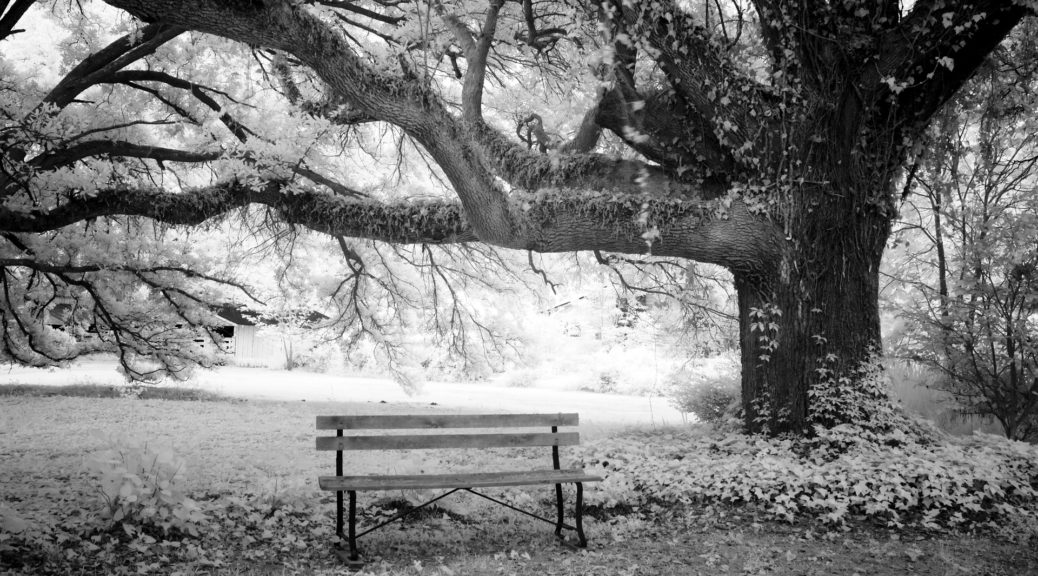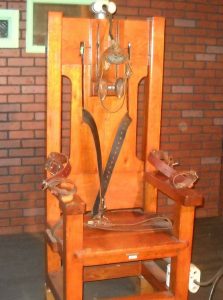You do not know me, but I know you well. I used to be you. I say used to, because I am no longer just you. I am the combined product of your sheltered, formative years and my introduction to reality, an amalgamation of our early childhood and adolescent life lessons – the bumps, bruises and growing pains – and the harsh reality of adulthood.
As the evolved you, what I need to impart is vital to our impending maturation process and our overall view of – not what life is supposed to be, but what it actually is. Nothing about life is static. At some point, everything changes. There will be some good changes, some bad, and sometimes you will be powerless to do anything about them. How you learn to deal with the effects of change will be key in determining where you go in life. The real world doesn’t give handouts or love you just because you think it’s what you deserve.
These times are the best you’ll ever experience. Some kids couldn’t imagine living as you do – a loving home with a mother and a father, plenty of food, toys, and not just clothes and shoes, but the latest styles. It’s blissful being given mostly everything you desire and having no real boundaries. You’ve been blessed to enjoy stress-free living in the way that all kids should, but many – if not most – do not. And obviously, at this point, you cannot imagine anything evil enough to step in and destroy this life.
I, however, must warn you about and prepare you for something so catastrophic that it will implode the comfortable and safe bubble in which we exist. Without warning, the leisurely, carefree life that our loving, yet enabling, parents – who love us more than anything but fail at “tough love” – work so hard to provide will suddenly be gone. Unfortunately, this “life of Riley” existence is lacking in discipline and creating an air of entitlement, though you cannot currently comprehend it, that makes you lazy, unappreciative, and irresponsible – character flaws that often obscure rational decisions.
There’s an epidemic on the horizon. Within five years these little, white cracked up pieces of what appears to be soap will not only destroy your life and the lives of most of the people you know, but it’ll also destroy millions of other lives – entire cities even.
Yes, it’s hard to imagine your parents choosing anything over their love for you, and even with all that I now know, I still cannot find the words to explain how it happens. It gets no tougher or more painful than when your first experience what betrayal is at the hands of the people you trust most.
Addiction is the unimaginable evil. It swoops in and destroys everything good about life. Because of it, your life will never be the same. You will trade a modest three bedroom home in the suburbs for the housing projects. You’ll see the woman you love more than anything on this earth – who nurtured you, cared for you when you were sick, sewed costumes for your school plays, and would die a thousand miserable deaths to protect you – sell her body for drugs, which will eventually lead to you having to hurt someone to protect her because she’s the only mother you will ever have. You will barely see your father, the man who took you on fishing trips and to your Saturday morning little league football games (and in a couple years will awkwardly and uncomfortably attempt to explain “the birds and the bees”). You’ll lose regular contact with your extended family, the people who you’ve spent almost every weekend of your life alternating visits between. You’ll lose what identity you thought you had and embark on journeys without safety nets, just brutal, unforgiving streets, to discover who we are and could’ve been.
Fortunately, as you grow into us, God provides a guardian angel for guidance, and we make it through the assumed biggest challenge of our short life and never lose our ability to dream. Then, we make the 3,000 mile cross-country trek to pursue our dreams. Unfortunately, in that pursuit, enraptured by the glitzy, glamorous facade that is Hollywood, I get us lost – misguided by my character flaws – and make the worst decision possible for us.
In a few years many of our Hollywood ‘friends’ will laud us for our exceptional talents, the same ego stroking we’ve encountered since childhood, which encourages us to regress to our old ways of expecting to be given instead of working. But don’t get sucked into a lifestyle of partying and drugs – remember how drugs destroyed our entire world just a few years ago. Don’t forget that! Only by working can you earn what you deserve.
You’ll be offered a great job – take it. Don’t let your ‘friends’ and your ego convince you that you’re too talented to work for someone else. Not only will it be a great opportunity to build bridges and your reputation within the industry, but it will also lead you away from a situation that will lead to the biggest challenge we’ll ever face.
The sole purpose of this letter, written by me to me, is to forewarn you of the perils of being a spoiled and lazy dreamer. Give us a chance to do better and to be better.
Had I taken that job, I wouldn’t be here now writing this letter to myself from the bowels of American society – Florida’s death row. It’s here where I’ve spent almost three decades – more time than all my years in society – regretting nothing more than that one misguided decision.
Wish I didn’t have to wish we could go back knowing what we now know.
ABOUT THE AUTHOR. Reshi Yenot is a talented writer who uses his words thoughtfully and purposefully. He puts his heart into his work, and is also very talented musically. I’m glad he entered our recent contest and happy to say he came in second place. Mr. Yenot writes under a pen name and can be contacted at:
Reshi Yenot
P.O. Box 70092
Henrico, VA 23255
©Reshi Yenot
![]()


 Back in the hallway we continue until we reach the end. There is a door in front of us that leads to the electric chair and a door to the left that leads to the death row housing unit. The Sergeant taps it with his keys, and a guard who looks like he should be just entering high school opens the door.
Back in the hallway we continue until we reach the end. There is a door in front of us that leads to the electric chair and a door to the left that leads to the death row housing unit. The Sergeant taps it with his keys, and a guard who looks like he should be just entering high school opens the door. After they leave, I look around for a light and spot a string in the corner dangling from the ceiling. I pull it, and a dim, 40-watt bulb comes to life. Roaches scurry everywhere.
After they leave, I look around for a light and spot a string in the corner dangling from the ceiling. I pull it, and a dim, 40-watt bulb comes to life. Roaches scurry everywhere. More than happy to oblige my ‘peers’, the Judge took all of sixty seconds to pronounce my fate. I already knew the sentence would be death, just as I had known the verdict would be guilty. “May God have mercy on your soul,” he concluded, before banging his gavel in an authoritatively dismissive manner, almost god-like himself.
More than happy to oblige my ‘peers’, the Judge took all of sixty seconds to pronounce my fate. I already knew the sentence would be death, just as I had known the verdict would be guilty. “May God have mercy on your soul,” he concluded, before banging his gavel in an authoritatively dismissive manner, almost god-like himself. Dammit! This heat! Sweat pours. The prison uniform I’m in is soaked. Sweat drops into my eyes, stinging me further. I squint and try to collect myself, so I can focus on the task at hand.
Dammit! This heat! Sweat pours. The prison uniform I’m in is soaked. Sweat drops into my eyes, stinging me further. I squint and try to collect myself, so I can focus on the task at hand.